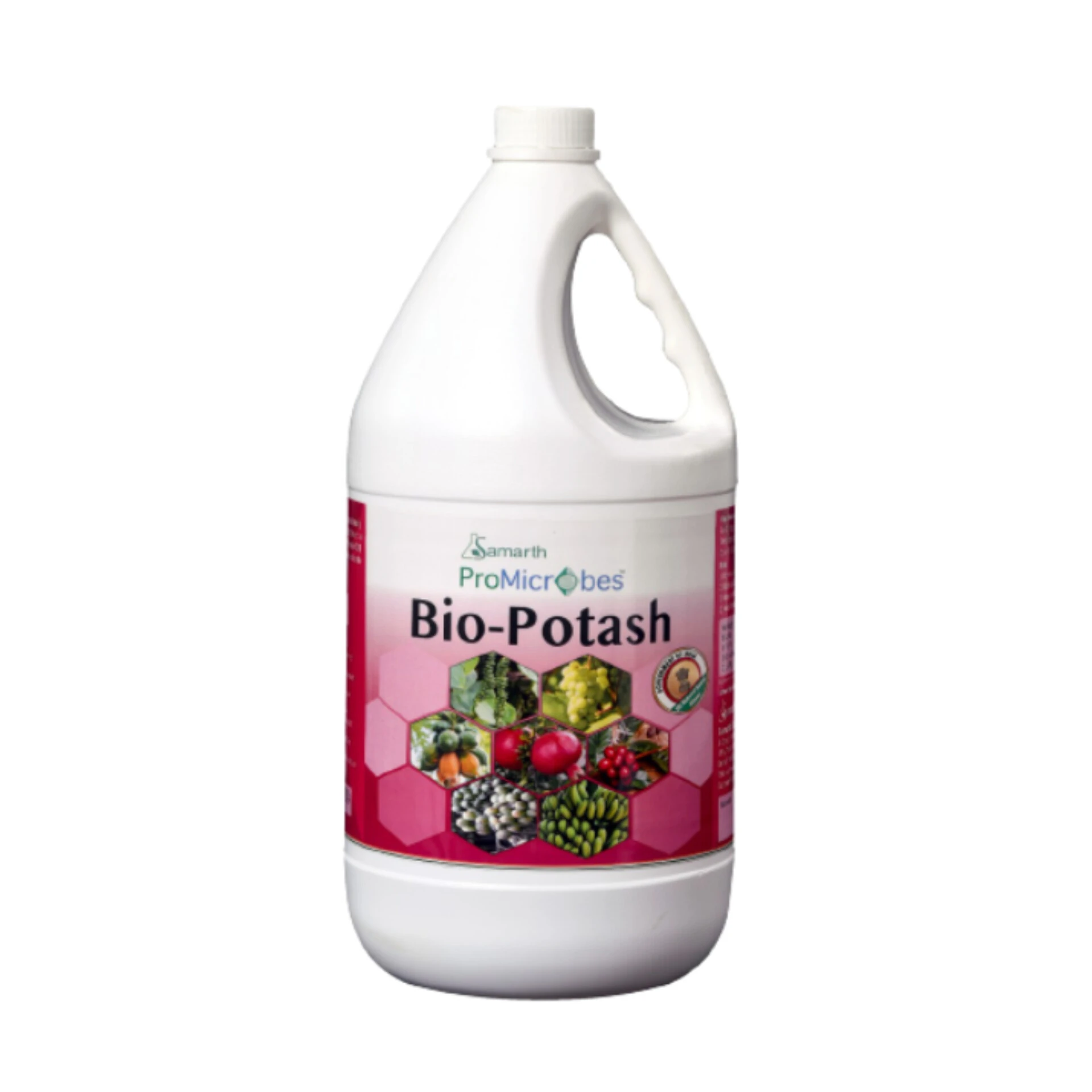Special prize

Bio Potash
Bio Potash is a revolutionary solution designed to combat potassium deficiency in soil, particularly benefiting crops like arecanut, banana, and papaya. Potassium deficiency can hinder seed formation… Read More
Rate & Reviews
Specifications
Manufacturer
Samarth Bio Tech Ltd.
Suitable crops
Arecanut, Banana, Papaya & Others
Organic/ Inorganic
Organic
Composition
Potash mobilizing bacteria ( 1*10^8 CFU/ ml)
Type
None
Available form
Liquid
Solubility in water
Soluble
Method of application
Drenching, broadcast and foliar spray
Application dosage
5 ml/ Ltr of water
Quantity per acre
1 Ltr
Description
The advantages of using Bio Potash are substantial. Potash mobilizing bacteria can make over 30 kg/hectare of potassium available to crops, producing organic acids that dissolve both soil potash and inorganic potash amendments. This results in increased synthesis of sugars and proteins required for plant growth and higher fruit yield. Moreover, Bio Potash acts as a regulator for enzyme activity, water-nutrient transport, and stomatal opening, crucial in combating drought stress. It also improves the lustre, size, and quality of produce. Farmers can apply Bio Potash through various methods, including soil drenching, broadcasting, and foliar spray, with recommended dosages of 1.5 lit/acre and 5 ml/lit of water. The advantages of using Bio Potash are substantial. Potash mobilizing bacteria can make over 30 kg/hectare of potassium available to crops, producing organic acids that dissolve both soil potash and inorganic potash amendments. This results in increased synthesis of sugars and proteins required for plant growth and higher fruit yield. Moreover, Bio Potash acts as a regulator for enzyme activity, water-nutrient transport, and stomatal opening, crucial in combating drought stress. It also improves the lustre, size, and quality of produce. Farmers can apply Bio Potash through various methods, including soil drenching, broadcasting, and foliar spray, with recommended dosages of 1.5 lit/acre and 5 ml/lit of water.